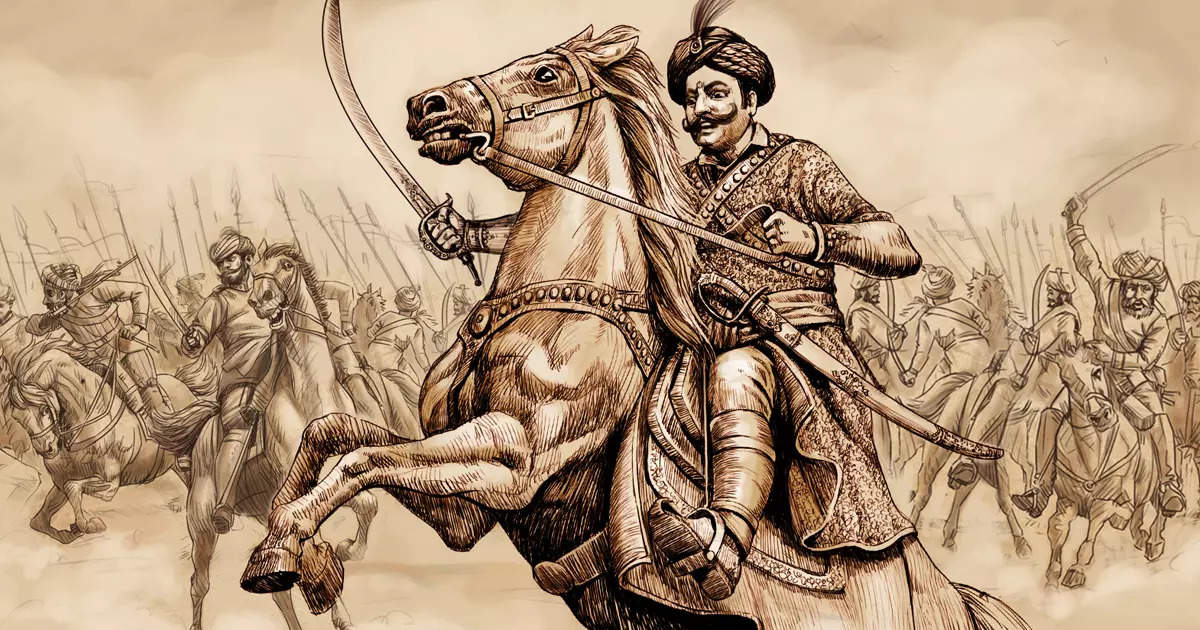In 1191, the first battle of Tarain saw Prithviraj Chauhan decisively defeat Muhammad Ghori. Prithviraj’s forces, known for their valor and superior cavalry tactics, overwhelmed Ghori’s army, leading to a significant victory. However, embodying the Rajput tradition of magnanimity in victory, Prithviraj spared Muhammad Ghori’s life and allowed him to return to his homeland. This act of mercy, while noble, was a strategic error that ignored the ruthless reality of the political landscape.
Prithviraj’s failure to “Crush Your Enemy Totally” gave Muhammad Ghori the opportunity to regroup, re-strategize, and return with renewed vigor. Ghori, having learned from his defeat, was determined to annihilate Prithviraj and seize control of northern India. He meticulously prepared for the second encounter, strengthening his army and devising new tactics to counter the Rajput forces.
In 1192, Muhammad Ghori returned to the plains of Tarain with a formidable army. The second battle was marked by cunning and deceit, a stark contrast to the honorable warfare of the Rajputs. Ghori implemented a deceptive strategy, feigning retreat to lure Prithviraj’s forces into a vulnerable position. This tactic exploited the Rajput’s sense of honor and chivalry, leading them into a trap.
Prithviraj’s forces, misled by Ghori’s feigned retreat, broke their formation and pursued the seemingly fleeing enemy. This strategic blunder exposed them to a well-prepared counterattack. Ghori’s troops, having successfully baited the Rajputs, turned and launched a devastating assault. The Rajput army, caught off guard and out of formation, was decimated.
Prithviraj Chauhan was captured in the aftermath of the battle. Muhammad Ghori, unlike Prithviraj, did not show mercy. He ensured that Prithviraj could never challenge him again, effectively crushing his enemy completely. The Rajput king was either executed or blinded and imprisoned, depending on historical interpretations, but the outcome was clear: Prithviraj was neutralized as a threat.
Muhammad Ghori’s victory in the second battle of Tarain and his subsequent actions illustrate the ruthless application of the “Crush Your Enemy Totally” principle. By completely eliminating Prithviraj as a political and military threat, Ghori secured his control over northern India and paved the way for the establishment of the Delhi Sultanate and Muslim Rule in India. This marked a significant shift in the region’s power dynamics, underscoring the effectiveness of Ghori’s uncompromising approach.
In contrast, Prithviraj Chauhan’s initial act of mercy in 1191 exemplifies the failure to adhere to this principle. By not eliminating Ghori when he had the chance, Prithviraj allowed his enemy to return stronger and more determined. His adherence to traditional Rajput values of honor and magnanimity, while admirable, ultimately proved to be a fatal flaw in the harsh realities of medieval warfare.
The battles of Tarain highlight the crucial importance of the “Crush Your Enemy Totally” principle. Muhammad Ghori’s ruthless elimination of Prithviraj Chauhan ensured his supremacy and changed the course of Indian history, while Prithviraj’s failure to apply the same principle led to his defeat and the downfall of his kingdom. This historical episode serves as a powerful reminder of the need for total domination to secure lasting power and prevent future threats.

Leave a Reply